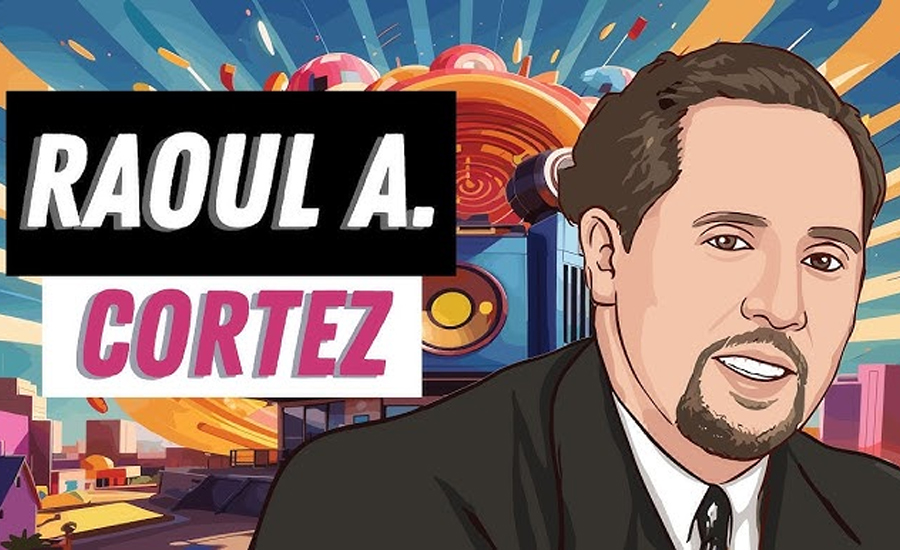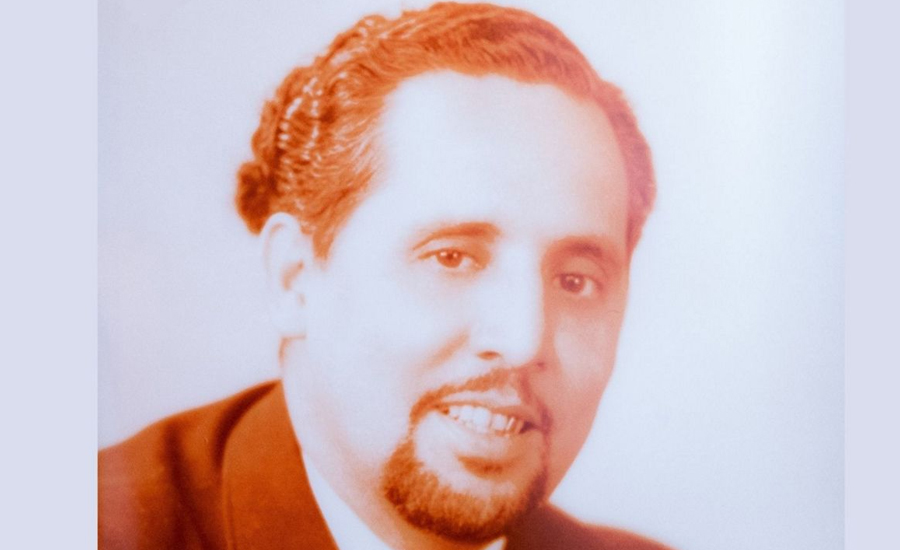Raoul A. Cortez is a household name among the most influential media pioneers in Hispanic America. As the founder of KCOR-TV, the first Spanish-language television station in the United States, Cortez’s contributions gave way to the construction of Hispanic representation in American media, a legacy that has grown and developed over the years. His sudden death on December 17, 1971, was the final curtain for an era but also a challenge to reflect upon his pioneering achievements. To better understand the details surrounding his death, its impact at the moment, and its long-term influence on Hispanic media in the United States, the article is divided into three parts: background and life, achievements, and death influence.
Background of Raoul A. Cortez
He was born in 1905 in Villa Acuña, Coahuila, Mexico. Years later, he immigrated to this country, where he accomplished his passion in the media. Most of Raoul A. Cortez’s early experiences in this country helped him become a noble figure who, despite being an immigrant, confronted hardships that the Hispanic communities in this country faced, especially in accessing media. He established KCOR-AM in 1946, San Antonio’s first Spanish-language radio station. That became a lifeline for this community, offering its music, news, and local updates in Spanish.
Contributions to Spanish-language Broadcasting

Raoul A. Cortez was the first Spanish-language radio broadcaster in the United States. He founded the first Spanish-language station in the contiguous United States, KCOR, in 1946. KCOR’s call letters were branded from his surname, and the slogan line was used: “La Voz Mexicana, the Voice of Mexican Americans.” KCOR was a means through which those who speak Spanish found access to information, bringing representation and inclusiveness.
Cortez took Spanish-language media beyond the radio:
Start of KCOR-TV
He established KCOR-TV Channel 41 in 1955, which was the very first UHF television network for Hispanic viewers. To this date, KCOR-TV has managed to achieve all-day broadcasting with daytime and local programs, movies, variety shows from Mexico, and community shows. They translated Latino experiences through media ventures while providing the Latino community with important information and entertainment.
In 1939, Cortez founded the “Sombrero” radio network – a syndicate of stations spread out throughout the USA that pooled its collective resources to update and promote programs. His stations were largely staffed with experts: commercial makers and musical programmers were included in his staff, such as Manuel Bernal, who was a qualified Mexican radio technician working for KCOR. Cortez’s pioneering work in Spanish-language broadcasting helped preserve and share Mexican-American culture, adding it to the American cultural tapestry.
Civic Engagement and Leadership
Raoul A. Cortez was an avid civil rights leader, litigating important cases such as Delgado v. Bastrop Independent School District, where segregation of Mexican Americans in Texas public schools was declared unconstitutional. He advocated for the rights of Black and Mexican American communities.
He also served in various leadership capacities within the League of United Latin American Citizens (LULAC), fighting on behalf of Mexican Americans for the advancement of their civil rights:
- He was a district director for District 15, which comprised San Antonio.
- Cortez served as president of LULAC for two consecutive terms in 1948
- He had followed the Delgado v. the Texas public school system’s segregation of Mexican Americans case that ended with the Bastrop Independent School District lawsuit.
- Outside of his work with LULAC, Cortez was very devoted to his people in several ways:
- He worked with Mexican President Miguel Aleman and U.S. President Harry S. Truman to alleviate assistance for Mexican immigrant workers in the bi-national ‘Bracero Program.’
- Cortez was active in the service of the larger citizen community in South Texas, such as organizing fundraising for flood victims of the Rio Grande Valley in 1954.
- He used media for civic activism directed towards the Spanish-speaking population in the United States.
Some Outstanding Achievements at a Glance
Upon my research, I had quite a number of achievements of Raoul A. Cortez that I considered to be particularly outstanding, and here are just a few of them:
He continued to be a rallying figure for most Hispanic broadcasters and business people
KCOR-AM in 1946 was the first 24-hour Spanish radio station in the US
KCOR-TV, in 1955, was the first Spanish television channel in the contiguous United States
He Fought for the rights and representation of minority groups in the media

Raoul A. Cortez Cause of Death
The well-known personality and individual Raoul A. Cortez died on December 17, 1971. Natural causes caused his death, but the circumstances of how it happened were not elaborated in the media. In fact, some records of historical events are incomplete, especially when discussing health issues and sometimes individuals from closed circles. It may be that he died from disease, owing to his advanced age, but since I have no means of accessing his medical record or death certificate, I cannot confirm this definitely.
That such a figure was Hispanic and influential in media innovation meant that his death came as a huge shock to the rest of the Hispanic community. His death meant the end of an era, and his disappearance became impossible for those who relied on his vision for representation in media with a feel for their culture and values.
During his death, community leaders, family members, and KCOR-TV and KCOR-AM aficionados expressed deep appreciation for the work Cortez had done to uphold the Hispanic voice in American society. His children and family, engaged in active participation in the business, vowed to carry on with the vision Raoul had set and give his legacy its due place. Although the transition was painful, it helped to sustain the impact of Raoul’s legacy, which the Cortez family carried on.
Impact of Cortez’s Death

The Hispanic media community and San Antonio at large lost a great one with the passing of Raoul A. Cortez. His loss impacted those who gave the proper tribute to his development works in Spanish language broadcasting and his advocacy for the portrayal of Hispanics in media. Much grief, respect, and nostalgia swept over the Hispanic community when KCOR-TV, which, from having grown out of a single pioneering station into a symbol of cultural pride, faced uncertain times.
Staff members and the Cortez family alike were set on continuing his work, which helped sustain the operation of the station. It was as if this was already a way of paying tribute to Cortez’s efforts as much as it underlined the need to sustain his vision.
Industry peers and leaders of the Hispanic community testified to the importance of the work that Cortez did; upon his death, media advocates galvanized, feeling his life’s work was necessary to remind them that there existed a pressing need for Hispanic representation. Members from all segments of Hispanic media admired him while recounting stories of how Cortez inspired them toward greater leadership. His death highlighted the fragile nature of Hispanic media then but galvanized the resolve of those he had nurtured to fulfil his dream.
Long-Lasting Impact
The death of Cortez ended his direct involvement with the media, but his influence only intensified decades after his death. The transition of KCOR-TV to KWEX-TV symbolized the sustainability of his legacy. Univision and Telemundo emerged as the stronger Spanish-language networks after this step, which is in line with Cortez’s dream. The Spanish-speaking audience in the U.S. grew multifold, and Cortez was a trendsetter that inspired investors, advertisers, and creators of content to come up with programs that would appeal to this large, culturally rich demographic.
Such contributions were particularly influential because they marked the first big push for Hispanic representation in the media. Before his work, Spanish-speaking Americans did not exist in the media landscape but were instead found on the periphery of American society. By launching Spanish-language radio and television stations, Cortez changed this dynamic. He demonstrated that Hispanic audiences were not only a viable demographic but also a group worthy of respect, visibility, and power.
Honouring and Inheritance

- He was honoured by the following organizations for his work in media excellence:
- The National Association of Broadcasters Honors Media Excellence Award.
- The trade magazine Radio Ink came up with the Medallas de Cortez Hispanic Radio Award in honour of Latino radio leaders and recognition of the lasting legacy of Cortez.
- 1981, San Antonio named the Raoul A. Cortez Branch Library in recognition of his achievements.
- In 2006, the National Association of Broadcasters bestowed the NAB Spirit of Broadcasting Award on both Cortez and son-in-law Emilio Nicolas, Sr.
- A Google Doodle celebrated his 118th birthday on October 17, 2023, the impact having been felt through broadcasting in Spanish and civil rights.
Cortez’s legacy lives on, shaping and guiding the media landscape:
His legacy has a home at last in the American Enterprise exhibit of the Smithsonian National Museum of American History in 2015.
Social Impact of Cortez’s Work After His Death
Raoul A. Cortez’s work was no longer just a media undertaking; it became a social and cultural project. His influence extended into the domains of identity and belonging for Hispanic Americans. KCOR-TV, along with other media ventures, became more than simply news outlets; it gave them a sense of community, solidarity, and cultural pride. Cortez envisioned Hispanic Americans to represent not just a vital part of American society but also something to be powerfully proud of, taking with them a rich cultural legacy.
With the advancement of media, Cortez’s pioneering work created a lineage for the younger generations of Hispanic media professionals. His lifetime’s work groomed young journalists, broadcasters, and entertainers to believe in the powers of Hispanic representation. Today, Hispanic media stations play an integral role in mobilizing various social and political causes, representing an empowered community that is not only part of America but also a driving force behind its cultural and social landscape.
How we Remembered Him?
- Raoul A. Cortez will be remembered as an innovator who took Hispanic media and culture to a level that had never been reached before:
- His radio and television stations set the grounds for the staging of Spanish media outlets
- KCOR-TV soon became KWEX-TV, and it has been included in the Univision network
- The works of Cortez were the beacons of light that led future Hispanic broadcasters and businessmen
- He has been described as a pioneering and exciting figure in bringing Hispanic culture and representation to American media.
How Modern Media Remembered Raoul A. Cortez?

Media history would be incomplete without Raoul A. Cortez. To date, he is being recognized as one of the pioneers whose works paved the road for the expansion of Hispanic media in the United States. His legacy extends into various awards and scholarships aimed at establishing Hispanic youth who would advance their careers in media. Hispanic media organizations have made memorials and awards in his name to encourage the next generation of media professionals to carry on his works.
The stations he included continued to follow in Cortez’s footsteps, so to speak, by both focusing on content and honouring Hispanic values and experiences. Today, organizations such as the National Association of Hispanic Journalists (NAHJ) and the Hispanic Heritage Foundation celebrate Cortez’s innovative spirit by awarding today’s leaders who are “breaking new ground” in similar ways. Univision, Telemundo, and other networks acknowledge that Cortez’s legacy remains among the main inspirations behind one of its founding functions; the media studies teach it as an integral chapter in American media history.
Conclusion
Raoul A. Cortez’s life and death sum up a turning point in American media history. His contributions birthed new vistas for Hispanic representation and voiced the millions of Spanish-speaking Americans. He not only transformed Hispanic media but also enriched American society by giving more importance to diversity, inclusion, and cultural authenticity. Yet, in this age where diversity and representation stand more often debated than ever in the past, the work of Cortez stands as a testament to the breadth of scope media. He was a cultural icon whose work will continue to inspire generations toward embracing and celebrating their heritage.



